Welcome to our free classical music site

Do you write about classical music? Are you a blogger? Want to team up with Classical Connect? Send us a message, let's talk!

Do you write about classical music? Are you a blogger? Want to team up with Classical Connect? Send us a message, let's talk!
This Week in Classical Music: August 21, 2023. Cavalieri, part II. Last week we began writing about the Italian composer Emilio de' Cavalieri and all we had time for were his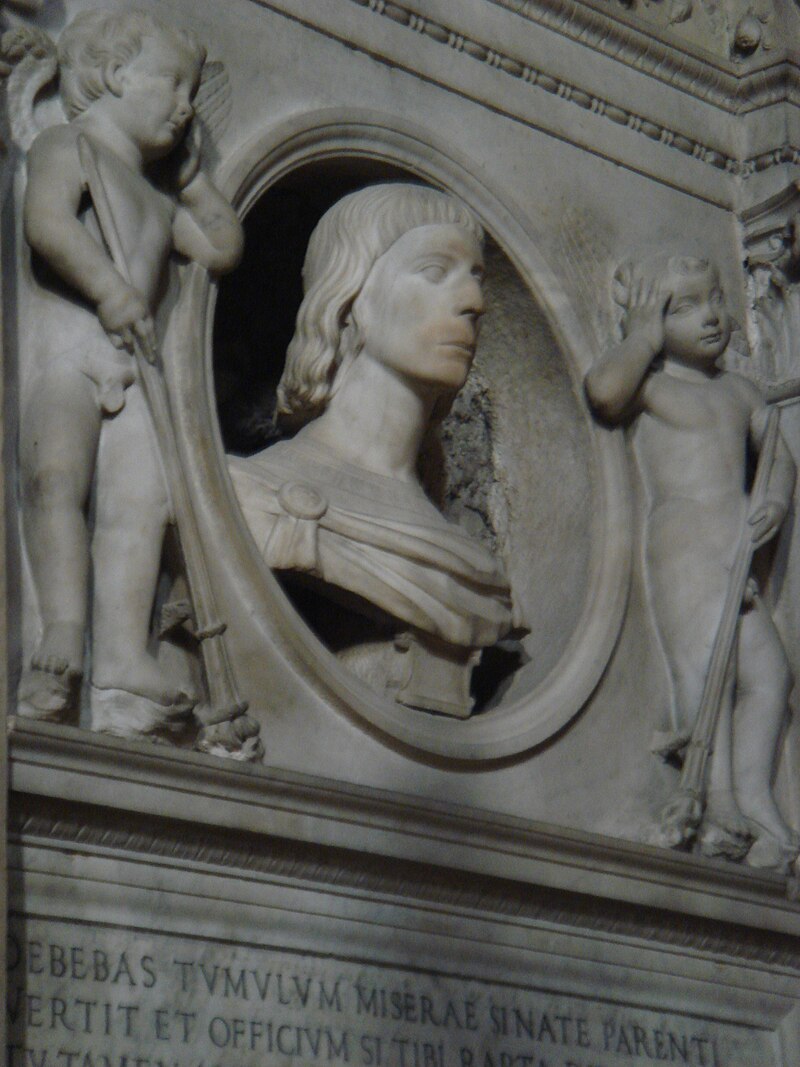 illustrious parents. Emilio started his musical career in Rome – we know that he was an organist at the Oratorio del Santissimo Crocifisso and was responsible for the Lent music there. While in Rome, he made the acquaintance of Cardinal Ferdinando de' Medici. A historically important fact about the Cardinal is that soon after he became the Grand Duke of Tuscany, returned to Florence and brought Cavalieri with him. A minor, but curious, detail is that the Cardinal was an art lover and acquired the famous collection of Roman statues from Cardinal Andrea della Valle, the uncle of Emilio’s mother, Lavinia, thus connecting the families of Cavalieri, della Valle, and Medici.
illustrious parents. Emilio started his musical career in Rome – we know that he was an organist at the Oratorio del Santissimo Crocifisso and was responsible for the Lent music there. While in Rome, he made the acquaintance of Cardinal Ferdinando de' Medici. A historically important fact about the Cardinal is that soon after he became the Grand Duke of Tuscany, returned to Florence and brought Cavalieri with him. A minor, but curious, detail is that the Cardinal was an art lover and acquired the famous collection of Roman statues from Cardinal Andrea della Valle, the uncle of Emilio’s mother, Lavinia, thus connecting the families of Cavalieri, della Valle, and Medici.
In Florence Cavalieri became not just a court composer and overseer of crafts and music, but also a trusted personal diplomatic envoy to the Duke. Elections of the Pope were among the most important political events in Italy, and Cavalieri helped Ferdinando to elect popes predisposed toward the Medici family, often going on secret missions to buy cardinals’ votes. This was a turbulent time, with popes lasting no longer than the Politburo Secretaries General at the end of the Brezhnev era. Pope Urban VII, elected in September of 1590, died of malaria just 12 days after taking office, Pope Gregory XIV followed and ruled for 315 days, then Pope Innocent IX, who ruled for 62 days, and finally, Clement VIII, who would go on to rule for more than 13 years. The turmoil kept Cavalieri’s diplomatic career busy.
In Florence, Cavalieri was provided an apartment in the Palazzo Pitti, the main residence of the Duke of Tuscany, and a handsome salary. As the court administrator and composer, he was responsible for staging intermedi, theatrical performances with music and dance. The famous ones were set up in 1589 for the marriage of Duke Ferdinando to Christine of Lorraine. Cavalieri produced many of these intermedi in the following years, often to his own music.
He traveled to Rome often and maintained relations with major composers in the city. In 1600, his work titled Rappresentatione di anima et di corpo (Portrayal of the Soul and the Body) premiered in the Oratorio dei Filippini in Rome. Rappresentatione is considered the first oratorio in the history of music and, with the intermedi, a predecessor to opera. The significance of it becomes apparent if we consider how the oratorio, also developed by Cavalieri’s contemporaries Jacopo Peri and Giulio Caccini, has evolved since 1600: this was the musical form that Alessandro Scarlatti, Antonio Caldara, Johann Adolph Hasse, Heinrich Schütz, Johann Sebastian Bach and George Frideric Handel used to create some of their most important compositions.
Cavalieri left Florence for Rome in 1600 under a cloud: the wedding of Henry IV of France and Maria de' Medici was lavishly celebrated, and the main event was the staging of the opera Il rapimento di Cefalo. Cavalieri expected to be in charge, but the staging was given to his rival, Caccini. Cavalieri died in Rome two years later and was buried in Cappella de' Cavalieri in Santa Maria in Aracoeli on the Capitoline Hill.
Together with Rappresentatione, Lamentations of Jeremiah for the Holy Week is Cavalieri’s major work. It consists of four parts, to be performed on consecutive days. Here’s the first section, Lectio prima, of the Lamentations for the first day. It’s performed by the Concerto Italiano under the direction of Rinaldo Alessandrini.Permalink
This Week in Classical Music: August 14, 2023. Lukas Foss and Emilio de' Cavalieri. The richness and diversity of classical music is almost infinite. Of course, we’re not talking about the false, woke diversity of race and gender. We mean the diversity of sound, organized by composers of different eras into amazing combinations that we call “music,” combinations of the aural entities so different that composers of yesteryears would not even recognize the work of their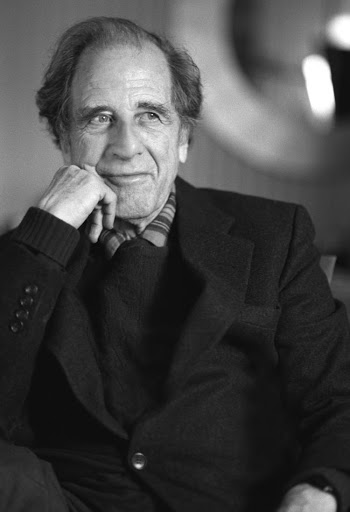 followers as belonging to the same art (if they would consider it art at all). We, on the other hand, are lucky to have access to this enormous body of work and can enjoy music composed in the 15th century as much as music from half a millennium later. We have two composers this week, one born in the first half of the 20th century, and another – in the middle of the 15th.
followers as belonging to the same art (if they would consider it art at all). We, on the other hand, are lucky to have access to this enormous body of work and can enjoy music composed in the 15th century as much as music from half a millennium later. We have two composers this week, one born in the first half of the 20th century, and another – in the middle of the 15th.
Lukas Foss was born in Berlin on August 15th of 1922 as Lukas Fuchs. His family was Jewish, and as soon as Nazis came to power, the Fuchses emigrated to France and four years later to the US where they changed their name to Foss. In the US, Lukas, who studied music while in Paris, went to the Curtis Institute where he took piano classes, composition, and conducting (his teacher at the Curtis was Fritz Reiner). Lukas started composing at seven, and in 1945, at 23, he became the youngest composer ever to receive a Guggenheim Fellowship. In 1953 Foss was appointed Professor of Music at UCLA, a position previously occupied by Arnold Schoenberg. While in California, Foss founded the Improvisation Chamber Ensemble and became the music director of the Ojai Festival. Later he served as the music director of several orchestras: the Buffalo Philharmonic, the Brooklyn Philharmonic, and the Milwaukee Symphony. He also guest-conducted many European and American orchestras.
Musicologists divide the development of Foss’s art into three phases: neo-classical; transitional, which was dominated by what he called “controlled improvisation,” and the third, experimental, even more improvisational, with more freedom given to the performer, and the forays into serialism. Let’s listen to two pieces, Thirteen Ways Of Looking At A Blackbird for voice (mezzo-soprano RoseMarie Freni) and small ensemble from 1978, here; and, from 1967, unfortunately in a rather low-quality recording, his great Baroque Variations for Orchestra: I. On a Handel Larghetto, II. On a Scarlatti Sonata, III. On a Bach Prelude "Phorion" (here). The Buffalo Philharmonic Orchestra is led by the composer Lukas Foss, was one of the most interesting American composers, and we’ll come back to his art another time
Italian composer Emilio de' Cavalieri was born in Rome in 1550 into an illustrious family. His father, a nobleman Tommaso Cavalieri, was the great love of Michelangelo’s life (Michelangelo dedicated 30 of his sonnets to Emilio and called him "light of our century, paragon of all the world"). When they met, Tommaso was 23 and very handsome, Michelangelo – 57 years old; whether the relationship was platonic or not, we don’t know. Emilio’s mother was a cousin of Cardinal Andrea della Valle. The cardinal was one of the first collectors of Roman art; the sculptures in the courtyard of his palace across the street from the church of Sant’Andrea della Valle were restored in one of the first efforts of its kind, and his antiquities were described by Vasari. We will continue with the story of Emilio de' Cavalier next week. In the meantime, let’s listen to Cavalieri’s wonderful Viae Sion Lugent from Lamentations.Permalink
This Week in Classical Music: August 7, 2023. Chaminade and Jolivet. Two French composers were born this week, Cécile Chaminade, on August 8th of 1857, and André Jolivet,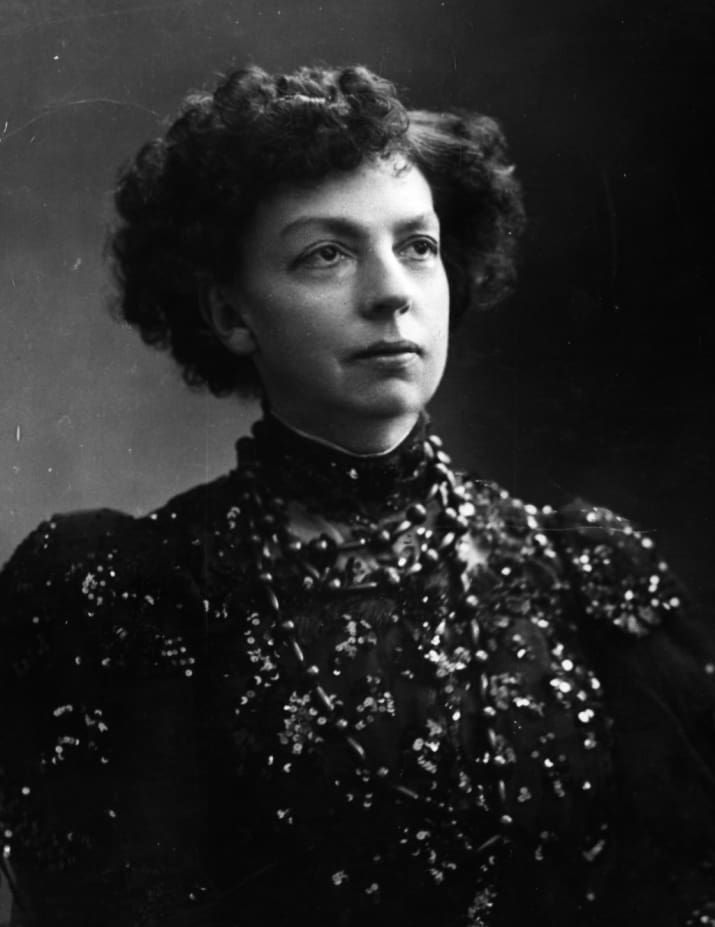 on the same day but in 1905. We suspect that in the last three years the music of Chaminade has been played more than throughout the previous 100: we live in the era of Wokeness when a composer’s gender (or race) is considered more important than his or her talent, and as there is a limited number of female composers, even the salon music of Chaminade becomes popular among presenters and performers, if not necessarily the listening public. This is not to say that in the past, women composers weren’t discriminated against: Chaminade, for example, was accused by her contemporary music critics of being both too feminine in her songs and lyrical piano pieces, and too masculine in the larger, more energetic pieces, such as the Konzertstück, (you can listen to it here). We don’t find anything excessively “masculine” in the piece, we’re not even sure what that term means when applied to music – it would’ve never been used by our contemporaries while discussing the music of Jennifer Higdon, Shulamit Ran, Libby Larsen, or Augusta Read Thomas. We just don’t find the Koncertstück very interesting – it has lots of trills in the style of the worst of Liszt and not much real musical material. (In this recording James Johnson plays the piano, the Royal Philharmonic Orchestra is conducted by Paul Freeman). Chaminade’s music became popular not only in her native France but also in England and the US in the 1890s, and that continued for another 20 years after which the interest in her music practically disappeared – her salon pieces clearly became obsolete. Chaminade lived till 1944, the last years in relative
on the same day but in 1905. We suspect that in the last three years the music of Chaminade has been played more than throughout the previous 100: we live in the era of Wokeness when a composer’s gender (or race) is considered more important than his or her talent, and as there is a limited number of female composers, even the salon music of Chaminade becomes popular among presenters and performers, if not necessarily the listening public. This is not to say that in the past, women composers weren’t discriminated against: Chaminade, for example, was accused by her contemporary music critics of being both too feminine in her songs and lyrical piano pieces, and too masculine in the larger, more energetic pieces, such as the Konzertstück, (you can listen to it here). We don’t find anything excessively “masculine” in the piece, we’re not even sure what that term means when applied to music – it would’ve never been used by our contemporaries while discussing the music of Jennifer Higdon, Shulamit Ran, Libby Larsen, or Augusta Read Thomas. We just don’t find the Koncertstück very interesting – it has lots of trills in the style of the worst of Liszt and not much real musical material. (In this recording James Johnson plays the piano, the Royal Philharmonic Orchestra is conducted by Paul Freeman). Chaminade’s music became popular not only in her native France but also in England and the US in the 1890s, and that continued for another 20 years after which the interest in her music practically disappeared – her salon pieces clearly became obsolete. Chaminade lived till 1944, the last years in relative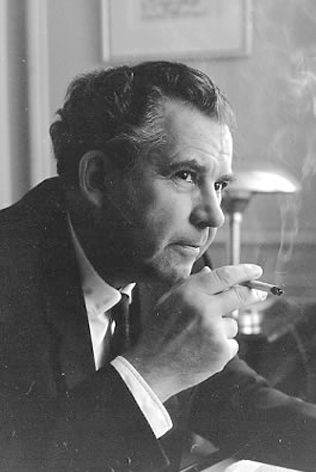 obscurity. She composed around 400 short piano pieces and songs, some of which are not without their charm. Here Anne Sofie von Otter sings her short song L'anneau d'argent. Bengt Forsberg is on the piano.
obscurity. She composed around 400 short piano pieces and songs, some of which are not without their charm. Here Anne Sofie von Otter sings her short song L'anneau d'argent. Bengt Forsberg is on the piano.
In the last three years, there has been no resurgence of interest in the music of André Jolivet, even if of the two, he is the more interesting, more inventive composer. We have several of his pieces in our library and have written about him more than once (for example, here). A prolific composer, Jolivet wrote several concertos. One of them was for the Ondes Martenot, an analog synthesizer invented in 1928 by Maurice Martenot; the sound of the Ondes (waves in French) is somewhat similar to that of a Theremin, another electronic instrument invented by the Russian researcher Leon Theremin around the same time). Jolivet also composed three symphonies, chamber and keyboard music, operas, and many songs. Here, from 1954, is Jolivet’s unusually scored Basson Concerto with the string orchestra, piano and harp (André Jolivet conducts the Jean-François Paillard Chamber Orchestra; Maurice Allard is the bassoonist).
And speaking of French music and musicians: the wonderful violinist Ginette Neveu was born on August 11th of 1919. You can read about her here.
PermalinkThis Week in Classical Music: July 31, 2023. Catching up. For the last three weeks we’ve been preoccupied with two German composers, Carl Orff and Hanns Eisler, and with that, we missed several notable anniversaries. We were going to write about Alfredo Casella who was born 140 years ago, on July 25th of 1883, in Turin. We’ll come back to him soon, in the meantime you can read our earlier entry. Eugène Ysaÿe was born 165 years ago, on July 16th of 1858. The wonderful Spanish composer Enrique Granados was born on July 27th of 1867. Hans Rott’s birthday is this week; he was born on August 1st of 1858. We have to admit our fascination with this underappreciated composer who predates Mahler in many ways.
missed several notable anniversaries. We were going to write about Alfredo Casella who was born 140 years ago, on July 25th of 1883, in Turin. We’ll come back to him soon, in the meantime you can read our earlier entry. Eugène Ysaÿe was born 165 years ago, on July 16th of 1858. The wonderful Spanish composer Enrique Granados was born on July 27th of 1867. Hans Rott’s birthday is this week; he was born on August 1st of 1858. We have to admit our fascination with this underappreciated composer who predates Mahler in many ways.
Several outstanding pianists were born in the previous three weeks, all in July: Van Cliburn on the 12th in 1934, Leon Fleisher on the 23rd in 1928, also on the 23rd of July, but in 1944 – Maria João Pires, and Alexis Weissenberg, on the 26th, in 1929. The Portuguese pianist Maria João Pires is the only one still alive, and at the age of 79 is very active, performing about 50 concerts a year.
During this period we also could’ve celebrated three violinists: Pinchas Zukerman, born on the 16th, in 1948; Isaac Stern, on the 21st, in 1920, and Ruggiero Ricci, on the 24th, in 1918. Zukerman is alive and well, and, like Pires, is still very active.
We’ll turn to conductors: Igor Markevitch was born on July 27th of 1912. He was also a composer, but we’ve never had a chance to write about his creative (rather than interpretive) talents. Riccardo Muti just left, with great pomp and circumstance, the post of Music Director of the Chicago Symphony. He was born on July 28th of 1941. And Erich Kleiber, a wonderful conductor and the father of the even more famous Carlos Kleiber, will have his anniversary on August 5th; he was born in 1890.
And finally, the singers. They were especially bountiful, so we’ll list their names only. Every person in this unbelievable group had a birthday in the previous three weeks: Nicolai Gedda, Kirsten Flagstad, Carlo Bergonzi, Pauline Viardot, Susan Graham, Giuseppe Di Stefano, Sergei Lemeshev, Mario Del Monaco, and Peter Schreier. We’ve written about many of them, and if we’ve missed some, like Ms. Graham, we’ll get to it later.Permalink
This Week in Classical Music: July 24, 2023. Hanns Eisler and Carl Orff, Part III. In the previous two posts, we told the story of two German composers whose lives were upended by the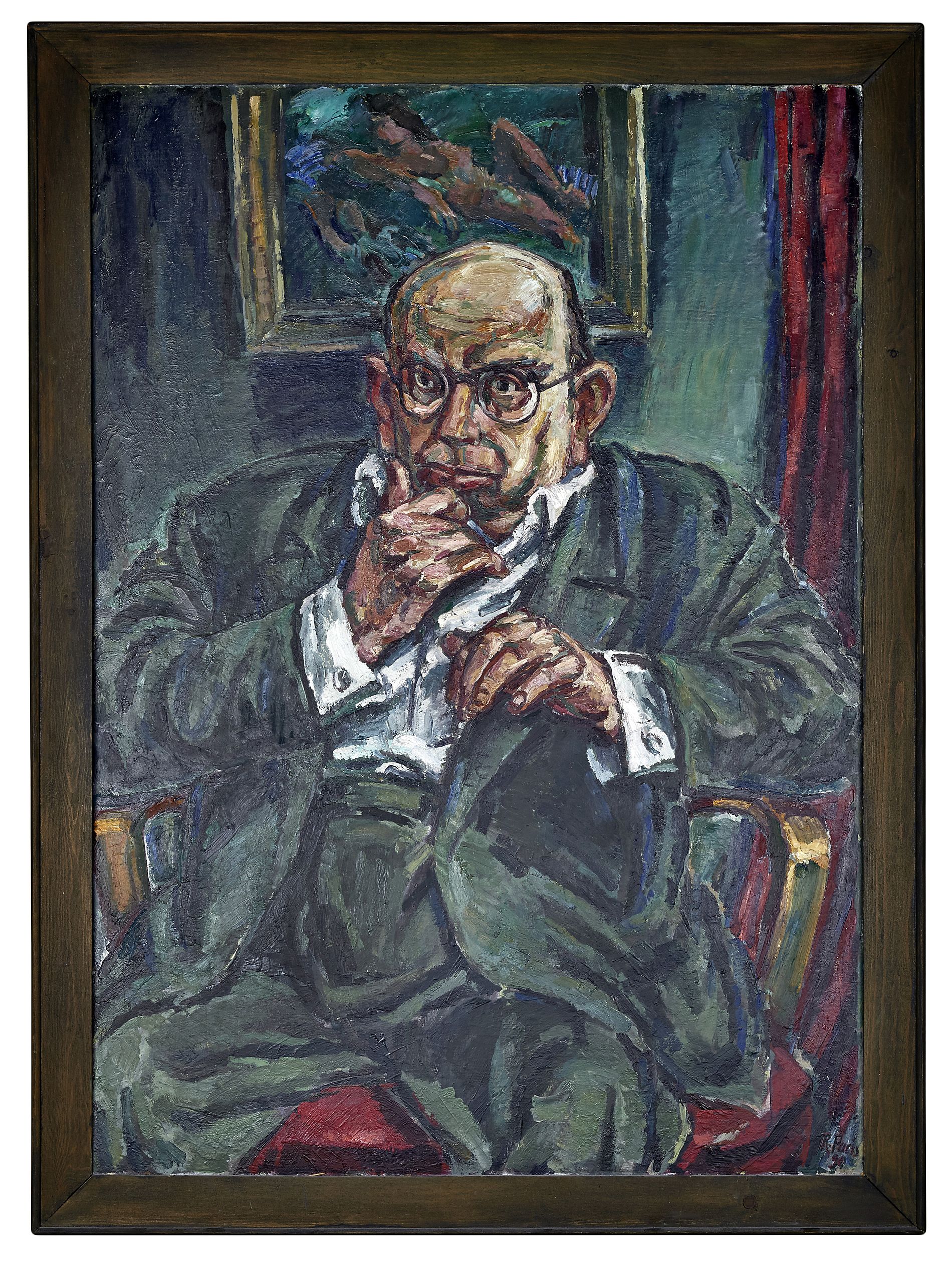 Nazi regime. So what are the legacies of Carl Orff and Hans Eisler? Eisler, as you may recall, spent his last years in East Germany, the Communist country subjugated by the Soviet Union, with an indoctrinated and controlled cultural life. Even though he was GDR’s most famous composer, who wrote the music to the national anthem, Eisler had to live and create according to the Party rules. His more “formalist” music was criticized and much of his output in the last years was populist by design: music for films and choruses and of course for the plays of his dear friend Brecht who was also living in East Germany. But we should remember that Eisler was a committed Marxist who had written propagandist music for years, so the atmosphere of the GDR fitted him better than it probably would any other creative artist. Eisler died in 1968, pretty much forgotten by the West. Then, in 1989, the Berlin Wall fell, the country reunited under the leadership of the Western, democratic part, and Eisler was “rediscovered,” if not with great enthusiasm. Eisler’s music isn’t performed often, even though some of his output is clearly of very high quality. Listen, for example, to his late collection of eight “Serious songs (Ernste Gesänge): it’s absolutely wonderful. (The baritone Günther Leib is accompanied by the
Nazi regime. So what are the legacies of Carl Orff and Hans Eisler? Eisler, as you may recall, spent his last years in East Germany, the Communist country subjugated by the Soviet Union, with an indoctrinated and controlled cultural life. Even though he was GDR’s most famous composer, who wrote the music to the national anthem, Eisler had to live and create according to the Party rules. His more “formalist” music was criticized and much of his output in the last years was populist by design: music for films and choruses and of course for the plays of his dear friend Brecht who was also living in East Germany. But we should remember that Eisler was a committed Marxist who had written propagandist music for years, so the atmosphere of the GDR fitted him better than it probably would any other creative artist. Eisler died in 1968, pretty much forgotten by the West. Then, in 1989, the Berlin Wall fell, the country reunited under the leadership of the Western, democratic part, and Eisler was “rediscovered,” if not with great enthusiasm. Eisler’s music isn’t performed often, even though some of his output is clearly of very high quality. Listen, for example, to his late collection of eight “Serious songs (Ernste Gesänge): it’s absolutely wonderful. (The baritone Günther Leib is accompanied by the Rundfunk-Sinfonie-Orchester Berlin under the direction of Günther Herbig).
Rundfunk-Sinfonie-Orchester Berlin under the direction of Günther Herbig).
Carl Orff, who survived, and quite comfortably, the Nazi regime while not leaving Germany for a day, was investigated by the Americans in 1946 and underwent the denazification process. According to the musicologist Michael Kater, during the process Orff made up some facts, presenting himself in opposition to the Nazi regime. That helped him to receive the classification allowing a return to public life. In Orff’s defense, he never joined the Nazi Party and never held any leadership positions. He was in many respects a compromised figure (he fulfilled Nazi’s commissions by writing the music for the 1936 Olympic games and replacement music for the Midsummer Night’s Dream), but we cannot say that his music in itself was “fascist.” After the war, Orff taught at the Hochschule für Musik in Munich and received many awards. In 1951 he completed the cantata Trionfo di Afrodite, which, with Carmina Burana and Catulli Carmina formed a triptych called Trionfi. The first part of the triptych, Carmina Burana, remains not just Orff’s most popular composition, but one of the most popular music composed in the 20th century. It has been used in dozens of movies and advertisements. Orff is also remembered for his work in music education. His Schulwerk ("School Work") is some of the best music composed for children.
Here’s Catulli Carmina, composed by Orff in 1941-43. The Münchner Rundfunkorchester orchestra and the Mozart-Chor, Linz are conducted by Franz Welser-Möst.Permalink
This Week in Classical Music: July 17, 2023. Hanns Eisler and Carl Orff, Part II. We’ll continue with the story of the lives of two German composers, both talented, born at about the same time, but whose lives took very different turns during the Nazi era. Carl Orff became one of the Nazi establishment’s favorite composers; his Carmina Burana (1937) and Catulli Carmina (finished in 1943) were performed across Germany. Hanns Eisler, on the other hand, had it much harder. In 1933 his music was banned (as were the works of his friend Bertolt Brecht). Both emigrated the same year; Brecht settled in Denmark, while Eisler became peripatetic: he went to the US on a speech tour, then Vienna, France, Moscow, Mexico and Denmark. In some of these places he worked on film scores; while in Denmark he collaborated with Brecht, writing music for one of his plays. He visited Spain during the Civil War where he went to the front lines. During one of his subsequent visits to the US he taught composition at the New School for Social Research in New York. In 1940 he received a grant from the Rockefeller Foundation and moved to New York, and two years later to southern California where there was already a large German émigré community. Brecht moved there too (in 1941), and again Eisler joined him in writing music to Galileo and other plays. He also collaborated with the philosopher and musicologist Theodor Adorno, one of the many German emigres living in “Weimar on the Pacific,” on a book about music in films. And Eisler wasn’t just writing, he was also composing music for films, and many of them, thus making a decent living.
same time, but whose lives took very different turns during the Nazi era. Carl Orff became one of the Nazi establishment’s favorite composers; his Carmina Burana (1937) and Catulli Carmina (finished in 1943) were performed across Germany. Hanns Eisler, on the other hand, had it much harder. In 1933 his music was banned (as were the works of his friend Bertolt Brecht). Both emigrated the same year; Brecht settled in Denmark, while Eisler became peripatetic: he went to the US on a speech tour, then Vienna, France, Moscow, Mexico and Denmark. In some of these places he worked on film scores; while in Denmark he collaborated with Brecht, writing music for one of his plays. He visited Spain during the Civil War where he went to the front lines. During one of his subsequent visits to the US he taught composition at the New School for Social Research in New York. In 1940 he received a grant from the Rockefeller Foundation and moved to New York, and two years later to southern California where there was already a large German émigré community. Brecht moved there too (in 1941), and again Eisler joined him in writing music to Galileo and other plays. He also collaborated with the philosopher and musicologist Theodor Adorno, one of the many German emigres living in “Weimar on the Pacific,” on a book about music in films. And Eisler wasn’t just writing, he was also composing music for films, and many of them, thus making a decent living.
It all came to an end when Eisler, Brecht, and several other Hollywood personalities were brought before the Congress’ Committee on Un-American Activities. He was accused, among other things, of being a brother of a “communist spy” Gerhart Eisler, and was labeled "the Karl Marx of music" (his brother Gerhart very likely was a spy as for many years he worked for the Comintern as a liaison – not that this somehow excuses the actions of the HUAC). Eisler’s case became an international cause célèbre, and many artists came to his defense, Charlie Chaplin, Thomas Mann, Albert Einstein, Pablo Picasso, and Henri Matisse among them. Eisler was expelled from the US in 1948. He returned to Vienna but soon after moved to East Berlin, then the capital of the German Democratic Republic. There he wrote a song which became the national anthem of the GDR. He became a professor at the Berlin Hochschule für Musik and a member of the Academy of Arts. And while he was feted and living in a “workers’ paradise” consistent with his doctrinaire political beliefs, the reality of GDR wasn’t easy even for him. In 1953 he decided to write an opera about Faustus, but the libretto was criticized as “formalistic” – that was Eisler’s last attempt to write an opera. One big positive was that his good friend Brecht was also living in Berlin, and they continued to collaborate on many of his plays (Eisler’s brother Gerhart was also there: he escaped the US in 1948, moved to East Germany, and became a senior executive in the governing Socialist Unity Party). But in 1956 Brecht died and that scarred Eisler for the rest of his life. He continued to compose, mostly songs but also what he called Angewandte Musik (applied music)” music for film and plays. Eisler died in East Berlin in 1962.
We’ll finish our story and listen to some music by Orff and Eisner next week.Permalink